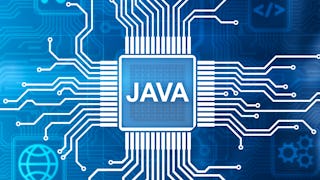Filter by
SubjectRequired
LanguageRequired
The language used throughout the course, in both instruction and assessments.
Learning ProductRequired
LevelRequired
DurationRequired
SkillsRequired
SubtitlesRequired
EducatorRequired
Find the Best Chemical Engineering Course for Your Goals
 Status: NewStatus: Free Trial
Status: NewStatus: Free TrialVanderbilt University
Skills you'll gain: Human Resources, Technical Communication, Human Resource Strategy, Technical Documentation, AI Personalization, Prompt Engineering, Employee Training, Generative AI, Persona Development, Interviewing Skills, Performance Review, Analysis
 Status: NewStatus: Free Trial
Status: NewStatus: Free TrialAmazon Web Services
Skills you'll gain: Generative AI, AI Personalization, Applied Machine Learning, Artificial Intelligence, Prompt Engineering, Large Language Modeling, Amazon Web Services, Automation, Performance Tuning, Scalability, Data Processing
 Status: New
Status: NewSkills you'll gain: Prompt Engineering, Generative AI Agents, Generative AI, Google Cloud Platform, AI Personalization, Customer experience improvement, Business Process Automation, Solution Design, Innovation, Large Language Modeling, Business Strategy
 Status: NewStatus: Free Trial
Status: NewStatus: Free TrialUniversity of Virginia
Skills you'll gain: Model View Controller, Version Control, Data Modeling, NoSQL, ChatGPT, Application Deployment, Software Development Tools, Google Cloud Platform, Databases, Database Design, Artificial Intelligence, Integrated Development Environments, Secure Coding
 Status: NewStatus: Preview
Status: NewStatus: PreviewSimplilearn
Skills you'll gain: Generative AI, Prompt Engineering, Image Analysis, Artificial Intelligence and Machine Learning (AI/ML), Computer Vision, Deep Learning, Natural Language Processing, Dimensionality Reduction
 Status: NewStatus: Free Trial
Status: NewStatus: Free TrialSkills you'll gain: Database Design, Continuous Integration, Restful API, User Requirements Documents, Docker (Software), Model View Controller, Front-End Web Development, Databases, User Story, CI/CD, Java, Java Programming, Hibernate (Java), Database Application, HTML and CSS, Full-Stack Web Development, Spring Boot, Java Platform Enterprise Edition (J2EE), Back-End Web Development, Software Design Documents
 Status: NewStatus: Free Trial
Status: NewStatus: Free TrialSimplilearn
Skills you'll gain: Generative AI, Large Language Modeling, Prompt Engineering, Artificial Intelligence, Application Development, Application Programming Interface (API)
 Status: NewStatus: Preview
Status: NewStatus: PreviewMacquarie University
Skills you'll gain: Information Privacy, Personally Identifiable Information, Data Security, Cybersecurity, Threat Modeling, General Data Protection Regulation (GDPR), Data Integrity, Data Governance, Data Ethics, Cyber Risk, Vulnerability Assessments, Vulnerability, Security Management, Security Software, Data Encryption Standard, Risk Management, Security Strategy, Compliance Management, Data Access, NIST 800-53
 Status: NewStatus: Free Trial
Status: NewStatus: Free TrialBoard Infinity
Skills you'll gain: Back-End Web Development, Java, Software Documentation, API Design, Software Design Patterns
 Status: NewStatus: Preview
Status: NewStatus: PreviewSkills you'll gain: Prompt Engineering, Generative AI, ChatGPT, Business Writing, Business Process Automation, Robotic Process Automation
 Status: NewStatus: Free Trial
Status: NewStatus: Free TrialSkills you'll gain: Azure Active Directory, Microsoft Azure, Data Lakes, Platform As A Service (PaaS), Cloud Computing, Data Integration, Relational Databases, AI Personalization, Cloud Applications, Cloud Development, Power BI, Performance Tuning, Microsoft Visual Studio, Anomaly Detection, Database Administration, Scalability, Virtual Machines, Cloud Platforms, Cloud Services, Cloud Management
 Status: NewStatus: Preview
Status: NewStatus: PreviewSkills you'll gain: Writing, Storytelling, Copywriting, Persuasive Communication, Facebook, Content Creation, Social Media Content, Social Media, Drive Engagement, Prompt Engineering, Generative AI Agents
Searches related to chemical engineering
In summary, here are 10 of our most popular chemical engineering courses
- Generative AI for HR Professionals: Vanderbilt University
- Amazon Bedrock Customization, Optimization & Automation: Amazon Web Services
- Agents d'IA générative : transformer l'entreprise: Google Cloud
- Coding Data Models with AI: University of Virginia
- Image Generation with AI Training Course: Simplilearn
- Java Development Capstone Project: IBM
- LangChain and Workflow Design Course: Simplilearn
- Data Security & Information Privacy: Macquarie University
- Foundations of Spring Boot & MVC Architecture: Board Infinity
- How to write better prompts: UiPath










